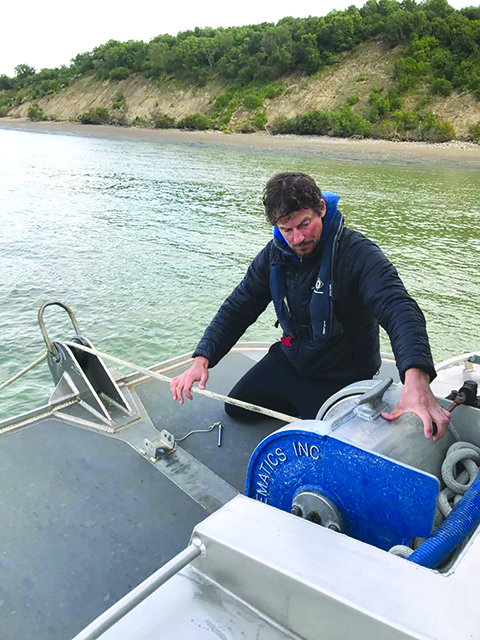“If you don’t adhere to the protocols, you won’t crew on my vessel very long,” said Mike LaRussa, captain of the F/V GK and a Bristol Bay Reserve board member.
In 2020, Bristol Bay Reserve, a fishermen-owned marine insurance pool composed of approximately 350 Bristol Bay vessel owners, took on the challenge of changing the fleet’s outlook on the use of PFDs by offering incentives to members to purchase PFDs that are suitable for routine use. The concept for the program came from the reserves’ seven-member board of directors — all of whom are vessel owners and operators in the Bristol Bay driftnet fishery.
The leading cause of death in the Bristol Bay driftnet fishery is drowning from falls overboard. Consistent use of PFDs, vessel safety experts believe, would largely prevent fatalities from falls overboard. However, there has been reluctance by vessel operators in the fishery to implement the regular use of PFDs in their vessel operations. This long-standing resistance is believed to be the result, in large part, of the “masculine” culture of the fishery and the impracticality of early PFD designs.
In partnership with Seattle Marine & Fishing Supply, Co., Bristol Bay Reserve offered preselected PFDs for purchase below retail price. As an added incentive, we provided members a discount on their vessel insurance premium for participation in the program. Seamar distributed the PFDs at its location in Naknek, where members could pick up their PFDs and avoid the logistical challenges presented by restrictions in transporting CO2 cartridges by air.
The response to the program far exceeded expectations with nearly 300 PFDs purchased.
“We were pleasantly surprised to receive such a large order from BBR,” said Tyler “Stretch” Jaross, general manager of Seamar in Naknek. “Given the number of PFDs ordered, we decided to increase the stock at our store in Naknek in case there was an interest in purchasing PFDs by others. As soon as BBR members started picking up their orders, our store’s remaining supply flew off the shelves. Our entire stock sold out almost immediately. It was incredible. We have since been contacted by other organizations in the region interested in coordinating with us on programs similar to BBR’s.”
Having found some initial success in breaking through the PFD stigma barrier, the next challenge is to get more participants in the fishery to incorporate and promote the regular use of PFDs in their vessel operations on a voluntary basis.
“I think the next step for those of us who have PFDs is to promote them to the rest of the fleet by really using them and being seen wearing them every day. This fleet is quick to catch on to trends, especially when it involves the safety of their crew,” said Darrin Manor, Bristol Bay Reserve board president and captain of the F/V Sarah J.
“I have had my crew wearing PFDs for the past several seasons. As captain, it is crucial to establish when the crew must don one,” LaRussa added. “It is essential to have policies in place for your crew to follow, and there are times when I instruct everyone to suit up.”
For captains interested in creating PFD policies for their crew to follow, NIOSH provides examples specific to gillnet vessels: “PFDs must be worn 100 percent of the time on deck; PFDs must be worn when climbing the stack; PFDs must be worn when crossing a river bar; PFDs must be worn when the weather turns bad.” See PFDs That Work — Gillnetters, DHHS (NIOSH) Publication Number: 2013-107, November 2012.
Based on the number of PFDs purchased by our members and others who followed suit, the reserve’s PFD program was successful in raising awareness among the Bristol Bay fleet about the availability of modern PFDs that are designed for regular use. The long-term goal is to not only get all fishery participants to purchase PFDs, but to get them to incorporate the regular use of PFDs as part of their routine vessel operations, which will go a long way toward achieving the ultimate objective of preventing crew-overboard fatalities.
“This industry is sometimes just one or two disasters away from facing major regulatory changes. There are tons of PFDs that can be comfortably worn while working on deck, plenty of effective recovery devices, and the training to recover someone from the water isn’t time consuming or expensive. Reducing fatal falls overboard really comes down to the leadership of the captain,” said Chris Woodley, chairman of the U.S. Coast Guard Commercial Fishing Advisory Committee and executive director of the Groundfish Forum.
Please visit your local marine supply store to find the PFD that is right for you and your crew.
Katie Enslow is the CFO of Bristol Bay Reserve.







